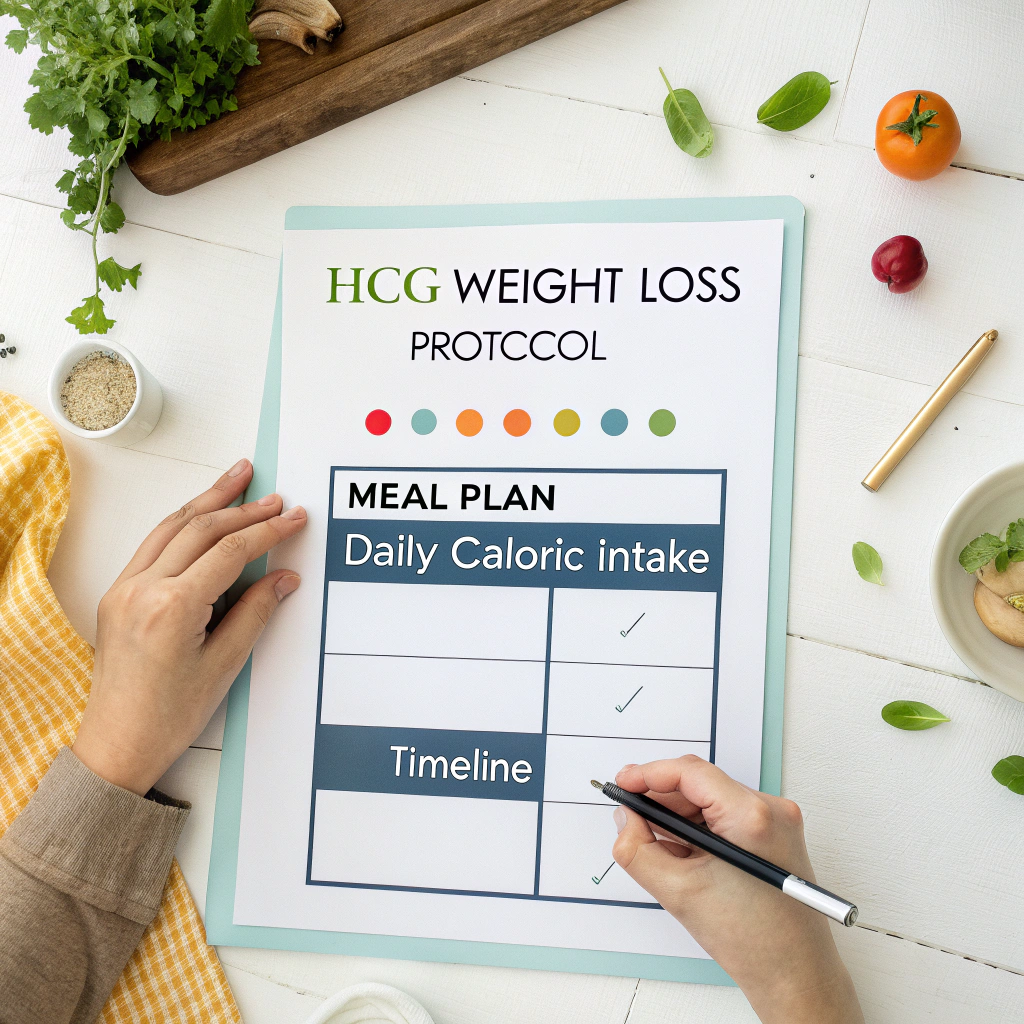Understanding the HCG Weight Loss Protocol
The HCG (Human Chorionic Gonadotropin) weight loss protocol combines a specific low-calorie diet with HCG hormone supplementation. This medical weight management approach targets stubborn fat deposits while preserving muscle mass during the weight reduction process.
How HCG Works for Weight Loss
HCG is a hormone naturally produced during pregnancy. When used in weight loss, it works by targeting stored fat cells, particularly in areas like the abdomen, hips, and thighs. The hormone signals the body to use these fat stores for energy, supporting rapid weight loss while maintaining lean muscle tissue.
The Four Phases of HCG Protocol
Phase 1: Loading Phase (Days 1-2) During these days, patients consume high-calorie, high-fat foods while starting HCG supplementation. This phase prepares the body for the upcoming caloric restriction.
Phase 2: Weight Loss Phase (21-40 days) This phase involves strict adherence to a 500-calorie diet combined with daily HCG administration. The body draws energy from stored fat, resulting in consistent weight reduction.
Phase 3: Stabilization Phase (3 weeks) Calories gradually increase while HCG administration stops. This phase helps establish a new metabolic baseline and prevents weight regain.
Phase 4: Maintenance Phase Regular eating resumes with careful monitoring of carbohydrate intake and weight. This phase focuses on maintaining the achieved weight loss.
Approved Foods During the Protocol
- Lean proteins: chicken breast, white fish, lean beef
- Selected vegetables: spinach, cucumber, tomatoes, celery
- Limited fruits: apples, oranges, strawberries
- Specific seasonings and herbs
Medical Supervision Requirements
The HCG protocol requires professional medical oversight. Healthcare providers monitor vital signs, conduct regular health assessments, and adjust the protocol as needed. Blood work and physical examinations ensure patient safety throughout the program.
Expected Results and Timeline
Most patients experience weight loss of 0.5 to 1 pound daily during Phase 2. The total weight loss varies but typically ranges between 15-30 pounds per round. Some patients may complete multiple rounds with proper spacing between cycles.
Health Considerations and Contraindications
The HCG protocol may not suit everyone. Medical screening identifies conditions that might prevent participation: - Pregnancy or breastfeeding - Certain hormone-sensitive cancers - Uncontrolled diabetes - Severe cardiovascular disease - Active blood clots
Lifestyle Modifications
Success requires commitment to: - Precise meal timing - Food weighing and measuring - Daily water intake (2-3 liters) - Light physical activity - Stress management - Adequate sleep
Post-Protocol Maintenance
Long-term success depends on proper transition and maintenance strategies: - Gradual calorie increase - Regular exercise routine - Balanced nutrition - Ongoing weight monitoring - Support group participation
Supplement Support
The protocol often includes supplementation: - B-complex vitamins - Potassium - Magnesium - Calcium - Multi-vitamins
Common Challenges and Solutions
Patients might experience: - Initial hunger (resolves within days) - Headaches (managed with hydration) - Fatigue (balanced with rest) - Constipation (addressed through fiber supplements) - Emotional eating triggers (supported through counseling)
Success Strategies
Optimal results come from: - Meal preparation - Food journal maintenance - Regular medical check-ins - Progress photos - Body measurements - Support system engagement


